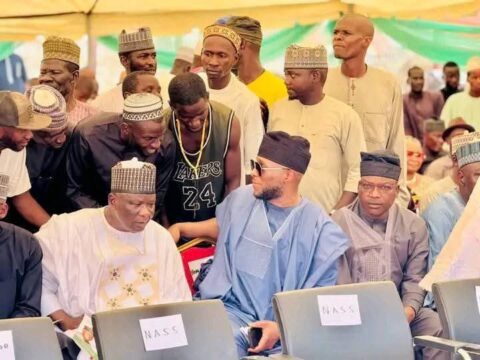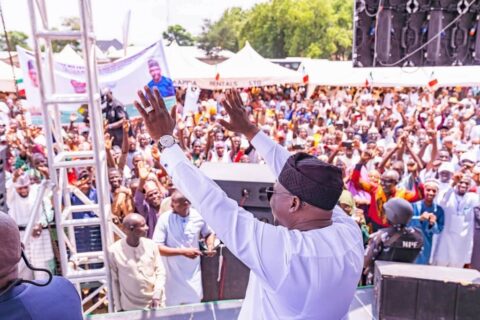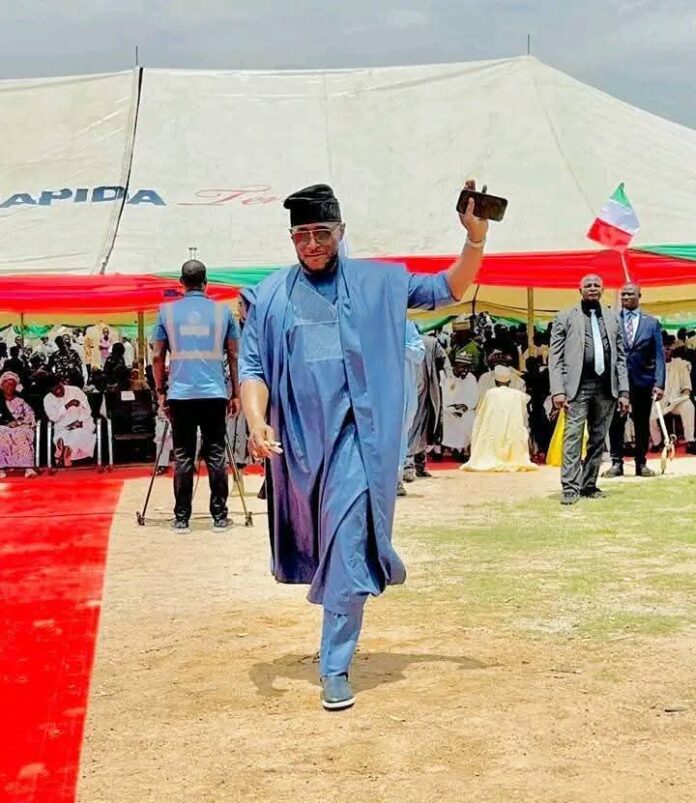By: Joy Musa
In a bold political statement that underscores internal party dynamics, Adamu Atiku Abubakar, Commissioner for Works and Energy Development in Adamawa State, reaffirmed his commitment to the Peoples Democratic Party (PDP) during a high-energy rally in Ganye ahead of the August 16 bye-election.
Speaking to a crowd of enthusiastic supporters, Adamu Atiku declared his unwavering loyalty to the PDP, despite growing speculation surrounding his father, former Vice President Atiku Abubakar’s recent alignment with the African Democratic Congress (ADC). The younger Atiku’s presence at the rally, alongside Governor Ahmadu Umaru Fintiri and other party stalwarts, was seen as a strategic move to consolidate PDP’s influence in the Ganye Constituency.
“Politics is interest, but my interest remains with the PDP and the people of Adamawa,” Adamu stated, drawing applause from the crowd.



The rally was part of the PDP’s campaign efforts to secure victory for its candidate, Barrister Mohammed Buba Joda, in the upcoming bye-election. Governor Fintiri urged voters to reject ethnic and religious divisions and vote for competence and continuity.
Adamu’s refusal to defect to the ADC despite his father’s vocal support for the party and its youth-inclusive leadership has sparked conversations about generational political divergence and the future of PDP in Adamawa.
While Atiku Abubakar has hinted at contesting the 2027 presidential election under the ADC banner, Adamu’s stance signals a potential ideological split within the family.
Political analysts view Adamu’s decision as a calculated effort to maintain regional credibility and avoid being swept into the national coalition politics that his father is spearheading.
“This is not just about party lines; it’s about principles and service,” Adamu added.
The rally also featured cultural performances and the reception of new members into the PDP, reinforcing the party’s grassroots appeal in the region.
As the bye-election approaches, Adamu Atiku Abubakar’s loyalty to the PDP may prove pivotal in shaping the political landscape of Adamawa State and perhaps, the broader narrative of opposition politics in Nigeria.







